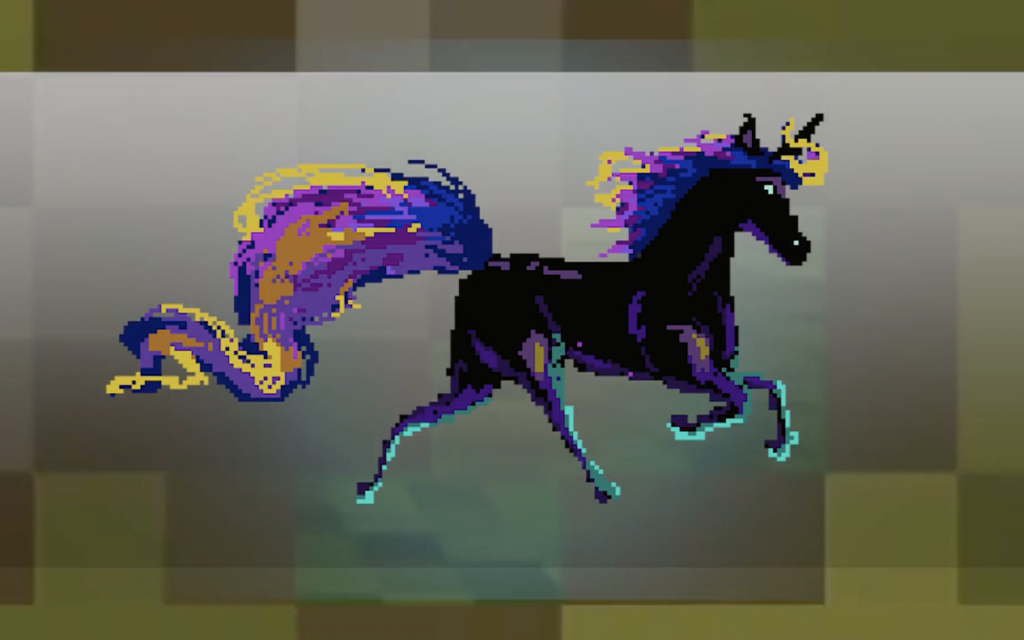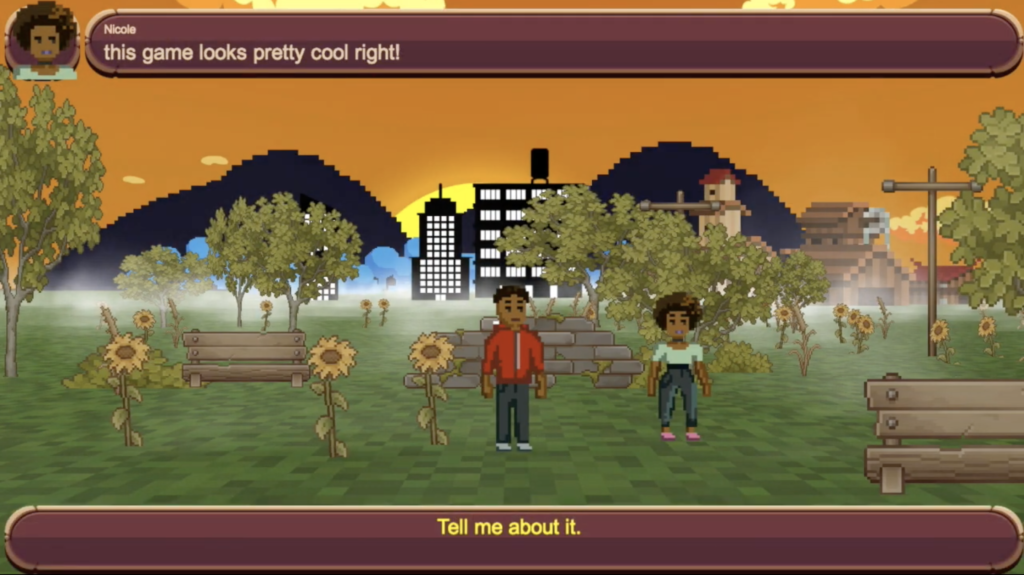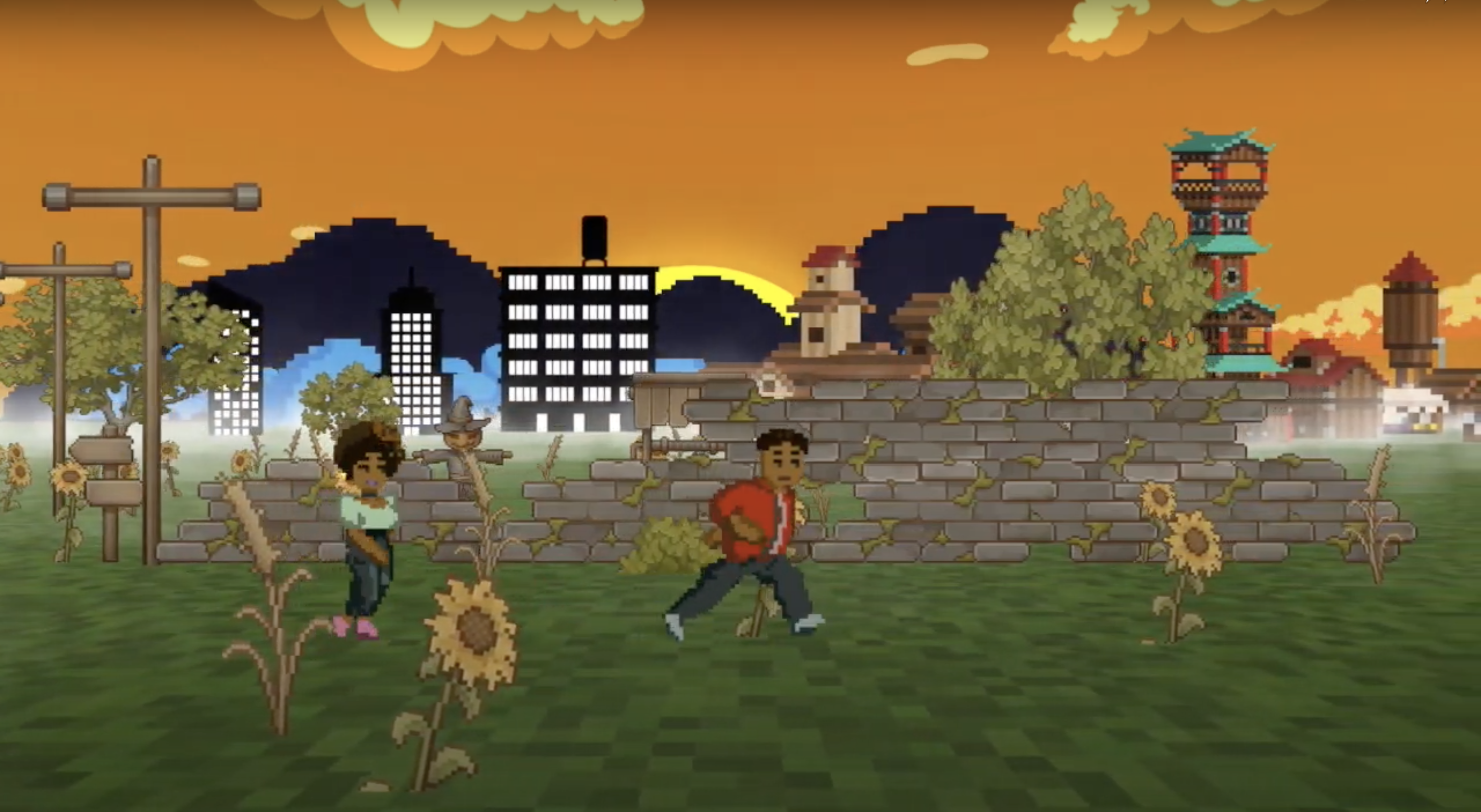Since the arrival of Zoom performances and pandemic theater, Darrel Alejandro Holnes’ Black Feminist Video Game has only pushed the digital form to a new standard. The play follows Jonas, an autistic biracial teenager, as he livestreams his attempt at winning back his crush using the titular Black Feminist Video Game, a fictional 90s video game that forces Jonas to confront his own misperceptions of the women in his life.
In its original intended form as a stage play, projections of Jonas’ virtual enemies were meant to appear behind him for the actor to interact with. His online viewers would be the physical people seated in the audience, and his in-game avatar would be the actor himself. As the world transitioned to digital theater due to the pandemic, though, the play had to be brought online, and Black Feminist Video Game’s subject material was already perfectly suited for the task.
In the play’s upcoming performances, beginning April 27th, Holnes has rewritten the piece as a fully interactive, digitalized experience. Jonas streams for an actual online streaming audience, the show’s ticketholders. The chat window is open for his viewers not only to interact with Jonas, but to change the course of the play with their choices. And – perhaps the largest change of all – Black Feminist Video Game is an actual, playable video game, designed specifically for the show by Ché Rose and Jocelyn Short of Cookout Games.

“This is the first time I’ve seen video games and theater integrated like this,” Jocelyn Short, the concept artist and asset creator for the video game, said of the project. “I’ve seen the two mediums inform each other in their own mediums, but never integrated physically. There are a lot of games that have very theatrical, drama-heavy influences in the way that they go about visual storytelling, but I think that this project is like a cool baby of quarantine. A quarantine creation.”
As concept artist and asset creator, Jocelyn designs the assets and visuals for the game, and animates the characters. Ché Rose is her counterpart – the founder, Creative Director, and lead programmer at Cookout Games. He describes the company as “just me and my laptop and four other people and their laptops,” now designing the video game, a task that can take years, in mere weeks.
The game itself plays to the aesthetic of 90s video games – Ché cites Super Nintendo and Sega Genesis games, specifically Super Ghouls ’n Ghosts, as inspirations – and, as Jocelyn notes, combines multiple art styles between background, foreground, and character design, making for a completely unique look created specifically to be streamed online for this play.

Not only is the medium itself unique, but the content within the game stands out to both game creators. When asked their thoughts on Black Feminist Video Game, Ché said, “I like how Black it is. I don’t think I’ve ever played a video game that was half as Black as this one will be, so I like that concept of it. It’s strange, because if you look at who’s spending what, we actually spend more, as a demographic, more than other people, but we’re represented way less.” In reference to the Bechdel Test, created by Alison Bechdel as a means of showing how little women speak to each other in fiction and the alienating effect that has on lesbian audiences, Ché says, “I think about that in terms of video games, and I’m just trying to think of, like, outside of, like, Madden, can I remember a single time, ever, in a video game where two Black people talk to each other? And I don’t think I have anything. I think none. And I play a lot of video games.”
Jocelyn agrees, and adds, “I like that the main character is neurodivergent. I don’t think I’ve ever seen or played anything–- Well, there’s very few things that I’ve played where the main character is a neurodivergent person and where the experience is focusing on their experience. And I think it’s well done. I like that aspect about it.”
The rarity of the medium this play works in and the content Che and Jocelyn have been tasked with creating is a testament to playwright Darrel Alejandro Holnes’ talent, and Ché Rose knows that better than most. “Darrel’s an old friend of mine. We were creative writing students at University of Houston together, so for him to, like, get a play greenlit that’s half play, half video game, live and also on Twitch, it’s just the most Darrel thing I could possibly think of. He’s always had this ability to pull off things that people are like, ‘how did you just do that?’ He’s a rock star. He’s always been a rock star.”
Black Feminist Video Game will be livestreamed on YouTube beginning April 27th. For tickets, click here.
To learn more about The Civilians and to access exclusive discounts to shows, join our email list at TheCivilians.org.
Author
-

Phoebe Corde (she/her) is a dramaturg, writer, and illustrator from Westport, Connecticut, specializing in stories of the strange, magical, and otherworldly. She is currently Resident Dramaturg at The Civilians, where she is director of their artistic development group, the R&D Group, and is a member of the creative board of directors at Off-Brand Opera. Her dramaturgical work has been seen on Broadway and Off-Broadway stages, including The Public Theater, Vineyard Theatre, A.R.T., Paper Mill Playhouse, Oregon Shakespeare Festival, Ensemble Studio Theatre, and 59E59.
View all posts









